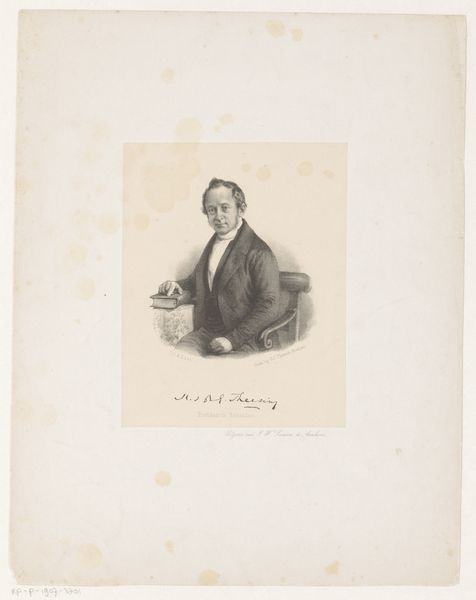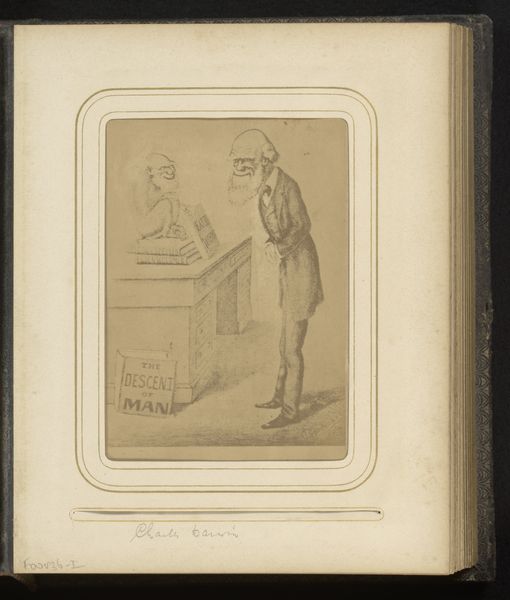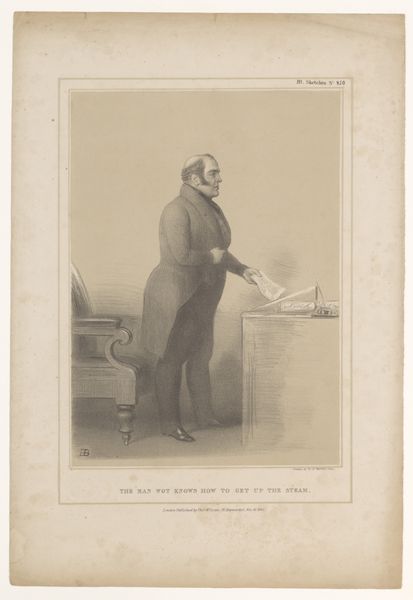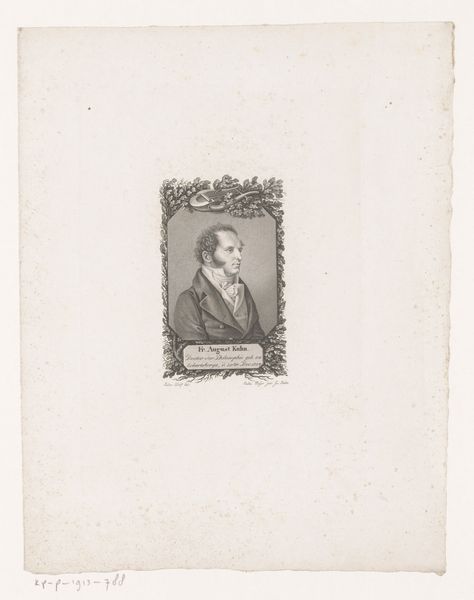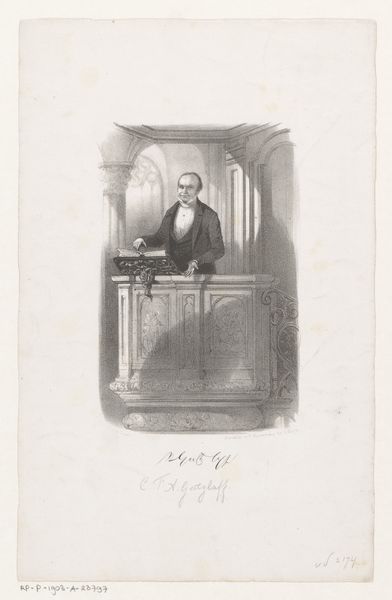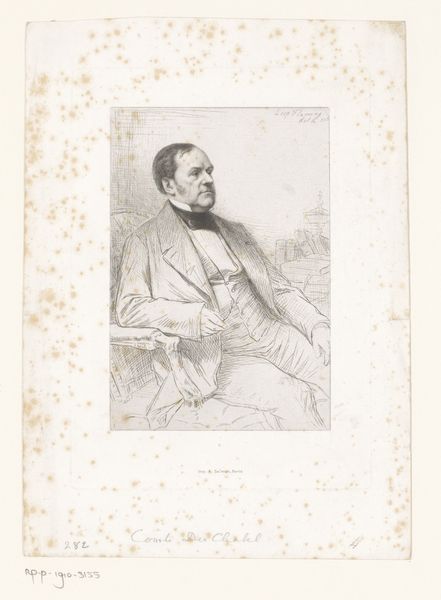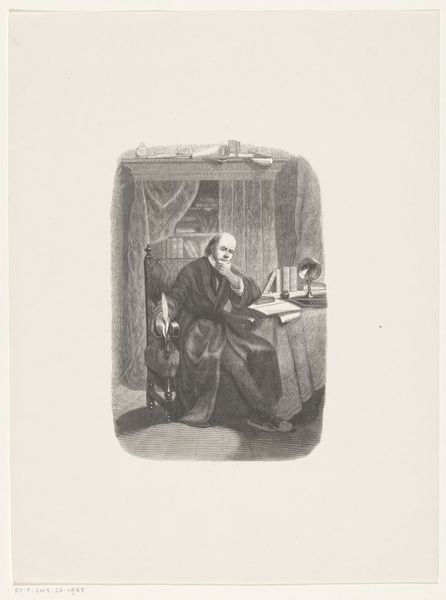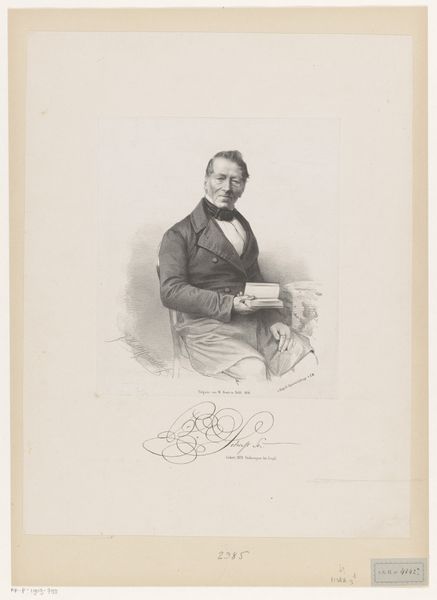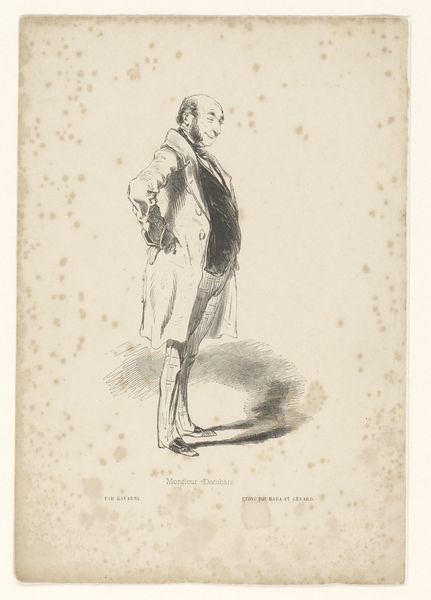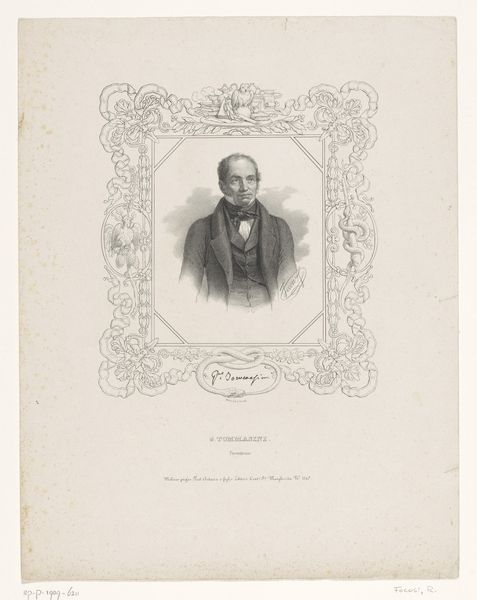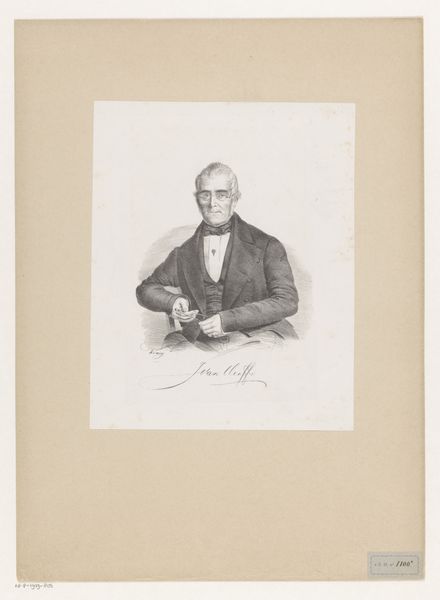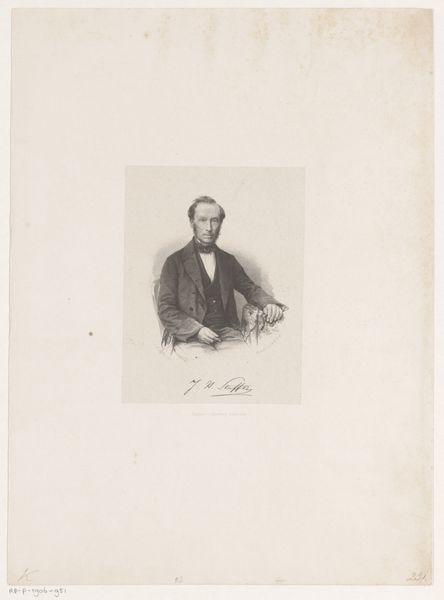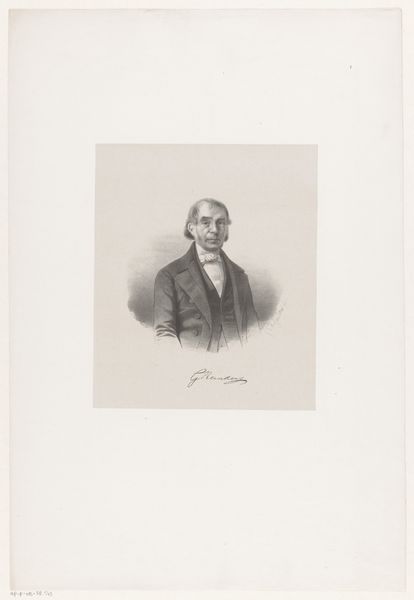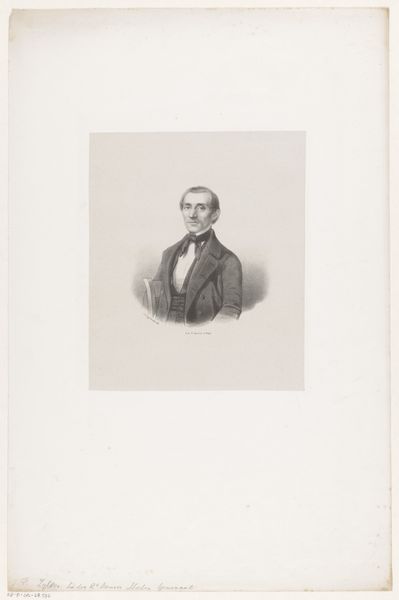
drawing, paper, pencil
#
portrait
#
drawing
#
paper
#
pencil
#
genre-painting
#
history-painting
#
academic-art
#
realism
Dimensions: height 360 mm, width 280 mm
Copyright: Rijks Museum: Open Domain
Editor: So, this is "Portret van J.C. Emeis," possibly from 1854, a pencil drawing on paper by Johann Peter Berghaus, housed in the Rijksmuseum. There's a formal quality, a kind of reserved dignity to it. What do you see in this piece? Curator: Immediately, I'm drawn to the carefully rendered detail – almost photographic. But it's the *selection* of details that speaks volumes. Notice Emeis's professional attire juxtaposed with the tools of his trade. These objects tell us something, hinting at not just his profession but perhaps also his status and ambition within the burgeoning scientific community. What emotions are triggered when viewing? Editor: I notice how prominent his scientific instruments are placed. He seems almost proud of his profession and wishes to show his contribution to society. Curator: Precisely. And isn't that interesting? The inclusion of these instruments transforms the portrait. This portrait is more than an image, it's a symbolic declaration, it embodies cultural and societal advancements reflected by scientific methods and achievements, isn't it? Editor: So it’s more about the social context than just being a likeness of a man? Curator: Indeed! Berghaus is using portraiture to reflect the values and aspirations of a specific class during a time of immense change. Even the stark, almost clinical rendering speaks to a belief in empirical observation and demonstrable proof that was rapidly shaping the world. But he could simply be including them because these are personal belongings of Emeis and they can show parts of his story. Editor: It's amazing how much history can be embedded in what seems like a simple drawing. Thank you for explaining this. Curator: And thank you. Reflecting on the context really enriched my interpretation, too.
Comments
No comments
Be the first to comment and join the conversation on the ultimate creative platform.
